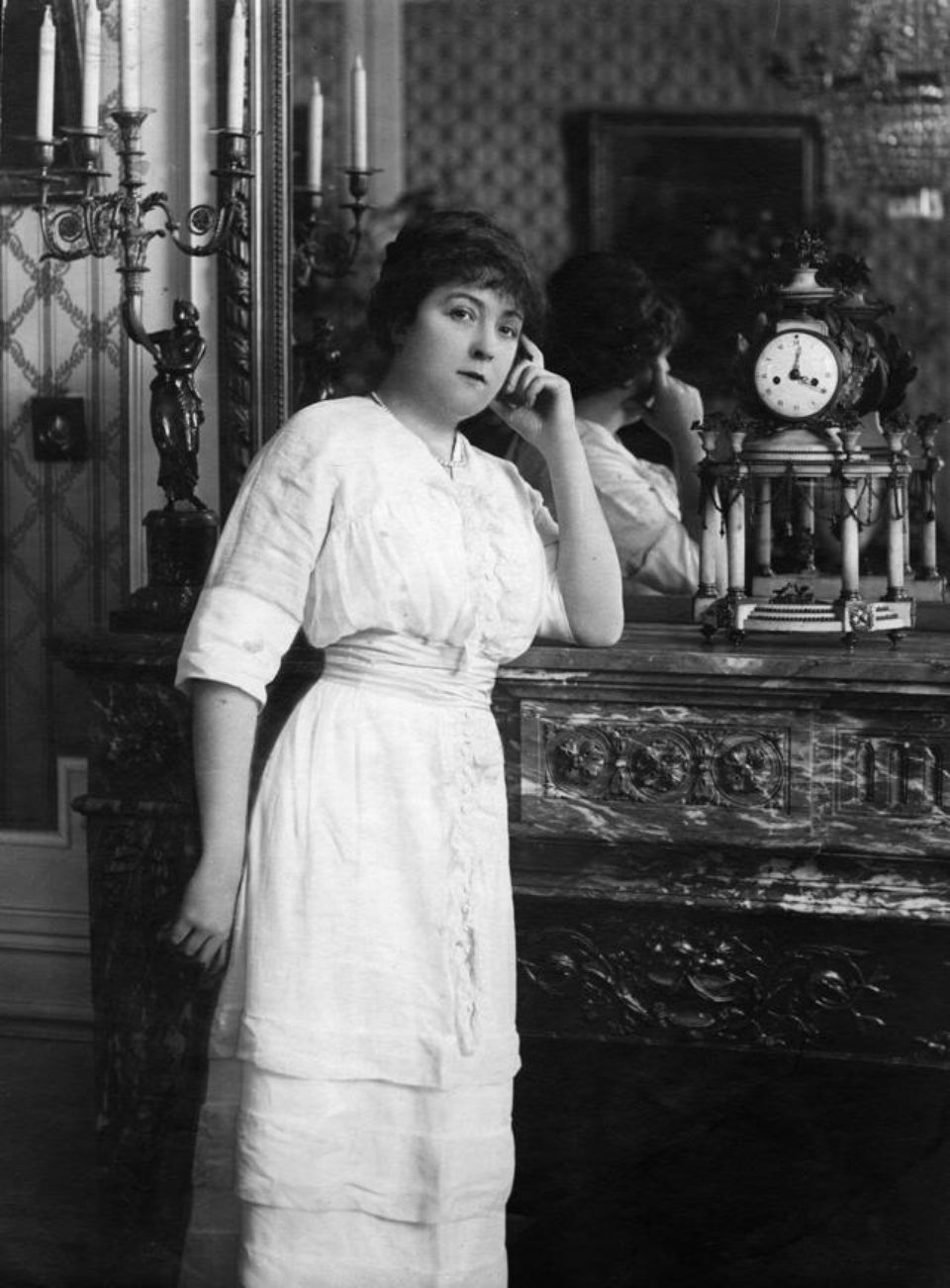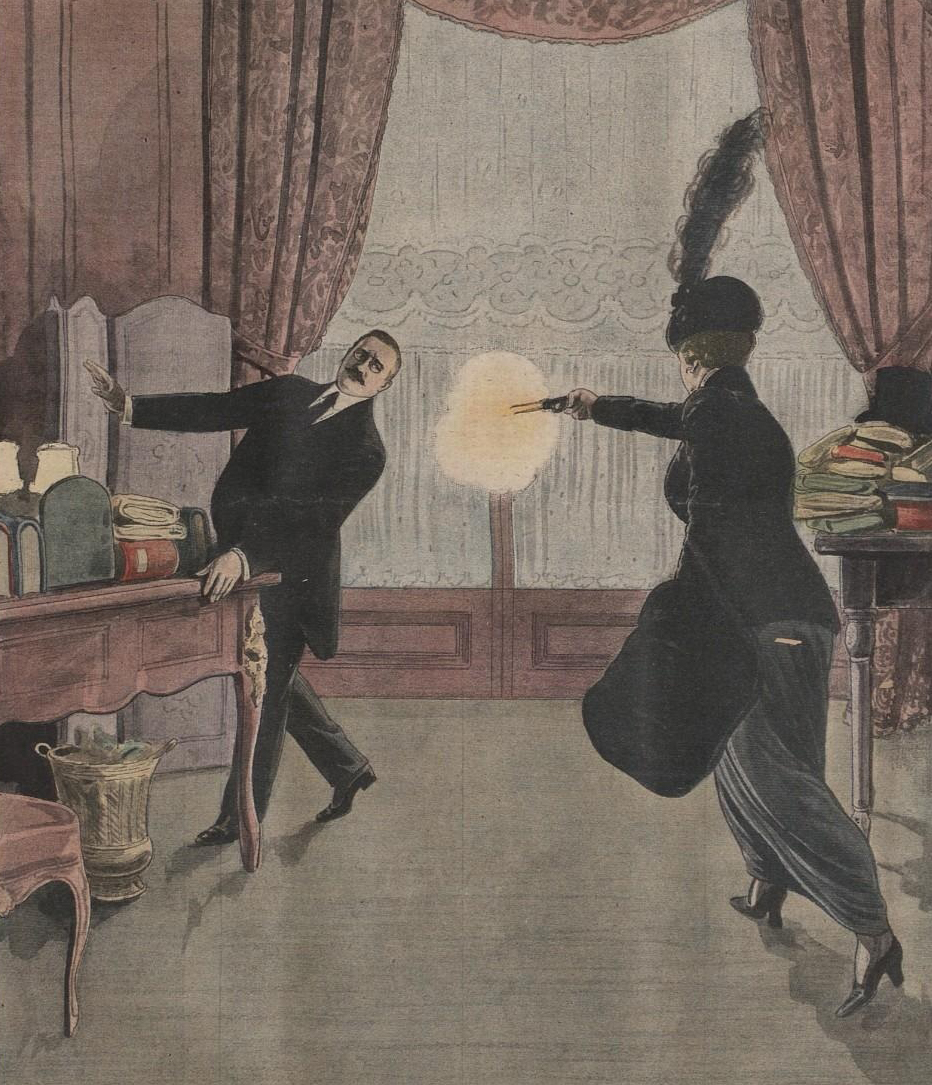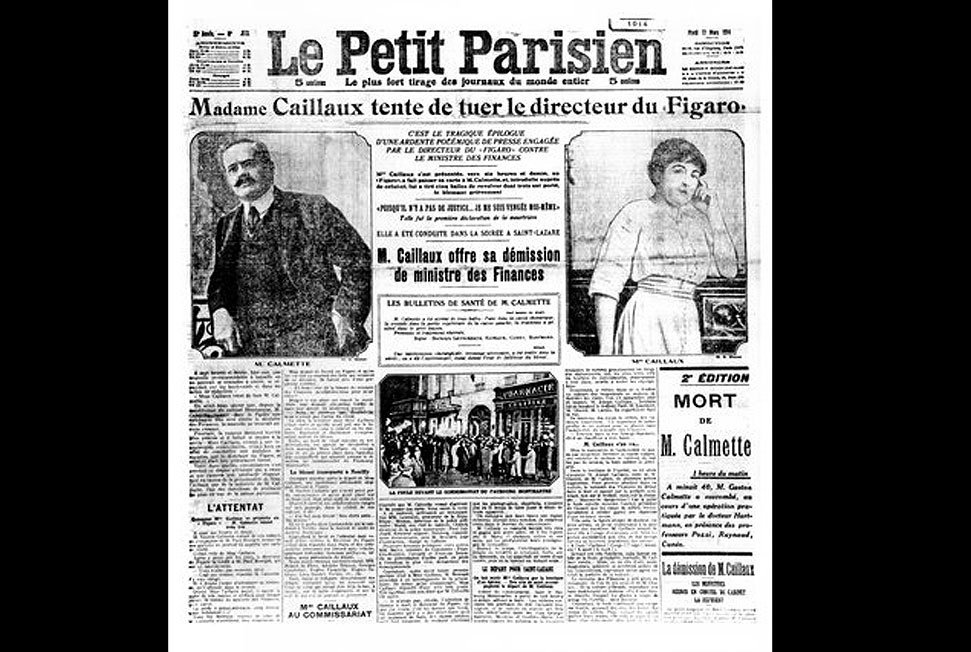Times were tough before the outbreak of the First World War. With increasing tensions brewing between Germany and France, any distraction was used in order to overlook the major social tensions that had already rolled into action. For the French, the story of a scandalous love affair gone wrong was all that the public were concerned with and before long, the tale went from the stuff of storybooks to something much, much darker.
Meeting some months before WWI, newspaper editor Gaston Calmette and socialite Henriette Caillaux were destined to become entwined in each other’s lives. Some months before, Calmette had written a lengthy and exposing love letter written by Caillaux’s husband 10 years before, bringing shame on the socialite’s family. The letter was deeply scandalous, having been penned by Caillaux’s husband when he was still married to another woman. Caillaux’s husband listed details not only about his private life but also, he disclosed important information about his political career, a move that could have cost him everything. As if this wasn’t bad enough, the letter also revealed Caillaux to be a German sympathizer, a fact that was hugely politically charged at the time.
Having built up something of a clean reputation for themselves, the Caillaux couple were shocked when the letter was released in an edition of newspaper, Le Figaro. While things were bad for her husband, Caillaux was really thrown into the deep end, her German sympathies costing her her elusive place in society. Fueled by rage, Caillaux stormed into the offices of Le Figaro, armed with a gun. Quickly firing six shots at Calmette, Caillaux killed him on the spot, leaving the offices straight away.
Despite the gravity of the crime, Caillaux never denied her part in the murder and some weeks later, she hired French lawyer Fernand Labori to defend her in court. The lawyer focused on the emotional impact of the event, stating that it was a crime of passion, committed in part due to Caillaux’s female mindset. At the time, women were often painted as emotional, ill controlled creatures, so relying heavily on such a claim could be an incredibly powerful move to make. The country’s lack of feminist ideals could well play in Caillaux’s favor and after making her statement, the socialite was in the hands of the judge and jury.
Before long, Caillaux’s defence paid off. She was acquitted for the murder due to her womanhood, which the jury believed caused her to make more rash, ill-thought through decisions. Perhaps unsurprisingly, the entire jury were male, and attributed Caillaux with the same ideals of femininity that they had grown up with. While the decision was detrimental for the fate of women in France, it paid off for Caillaux, allowing her to walk free for a crime of cold murder.
While life did go on for Caillaux in a sense, she was always the subject of widespread intrigue and attention. Due to the trial, her name became known across the country and her exploits were largely documented by the press. As well as spurring on a number of heated debates about the sexes, marriage and divorce, Caillaux also inspired a number of larger than life cartoon strips. As for Le Figaro, the newspaper continued to publish unfavorable articles on the socialite, claiming that it was her femininity that enabled Caillaux to gain the favors of her male jury.




